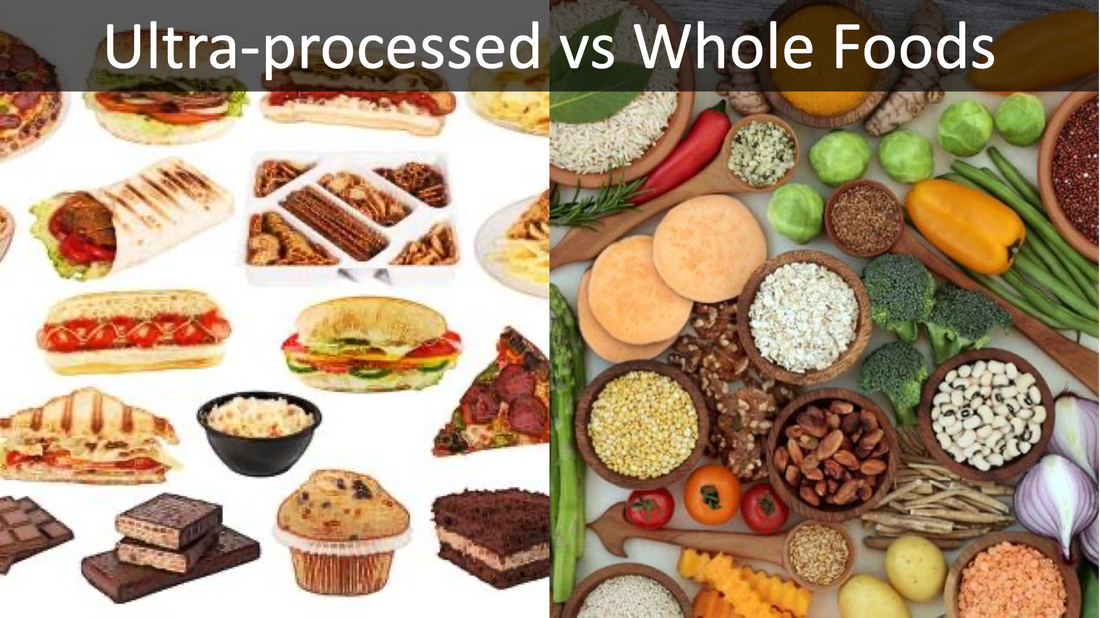The Shocking Truth About Processed vs. Ultra Processed Foods: A Food Industry Exposé
Introduction
In a world where convenience often trumps nutrition, the battle between “Processed vs. Ultra Processed Foods” rages on. It’s a dichotomy that affects our daily choices, our health, and even the very food industry that sustains us. This exposé delves deep into the heart of this matter, unraveling the layers of deception that shroud processed and ultra-processed foods. Join us on a journey of discovery as we unveil the astonishing truth behind these edible commodities.

The Basics: What are Processed and Ultra Processed Foods?
To embark on our exploration, let’s first understand what we’re dealing with. Processed vs. Ultra Processed Foods – two terms that have become intertwined with our daily dietary decisions.

-
Processed Foods: Finding the Balance
Processed foods are essentially culinary creations that undergo some degree of alteration before they reach our plates. These changes may include cooking, freezing, or the addition of preservatives. In moderation, they can serve as convenient meal options that save time and effort.
-
Ultra Processed Foods: The Culprits Behind Convenience
On the other end of the spectrum, ultra-processed foods are unrecognizable from their original form. These products are typically high in sugar, unhealthy fats, and a long list of chemical additives. Think of the candy bars, soda, and microwaveable meals that line the shelves of your supermarket.
read more about Exploring the Link Between Diet and Mental Well-being
The Impact on Our Health
Now that we’ve defined the terms, it’s crucial to understand how these food choices can directly impact our health.

Processed vs. Whole: What’s the Difference?
In the battle of Processed vs. Ultra Processed Foods, it’s important to remember that not all processed foods are inherently bad. Some, like frozen vegetables or canned beans, can be part of a balanced diet. The key is to choose wisely and be aware of what goes into your meals.
Ultra Processed Foods: The Silent Killers
Ultra-processed foods, however, are the real culprits behind health concerns. High in added sugars, unhealthy fats, and synthetic additives, they have been linked to a variety of health problems, including obesity, heart disease, and diabetes.
The Food Industry’s Secrets

In this section, we unveil the intricate web of secrets that the food industry weaves around processed and ultra-processed foods. Understanding these hidden aspects is crucial for making informed choices about what we put on our plates.
The Marketing Deception

One of the food industry’s most potent tools is marketing. Ultra-processed foods are often promoted as convenient, delicious, and affordable options for busy consumers. But the reality is far from the advertising claims.
The Profit Motive

Profit drives the food industry, and ultra-processed foods offer higher profit margins due to their low production costs. Discover the financial incentives that keep these products on our shelves.
How to Make Informed Choices

In a world where processed and ultra-processed foods are readily available, making informed choices is essential.
The Power of Label Reading
Learn how to decode food labels and distinguish between minimally processed and ultra-processed options. This skill can be a game-changer in your quest for a healthier diet.
Cooking and Meal Preparation
Taking control of your diet is empowering. Discover the joy of cooking and meal preparation, and how it can transform your relationship with food.
read more about Super Healthy Seeds for Weight Loss
Conclusion
As we conclude this exposé on “The Shocking Truth About Processed vs. Ultra Processed Foods,” we hope you’ve gained valuable insights into the choices you make daily. Remember, moderation is key, and making informed decisions can lead to a healthier, happier life. It’s time to reclaim the power over your plate and navigate the aisles of the supermarket with newfound wisdom.
In a world dominated by the processed vs. ultra-processed foods dilemma, choose health, choose awareness, and choose a future where your diet doesn’t compromise your well-being.
FAQs
1. What are the key differences between processed and ultra-processed foods?
Processed foods undergo some alterations, while ultra-processed foods are heavily transformed and often contain synthetic additives.
2. How can I identify ultra-processed foods while shopping?
Look for foods with long ingredient lists full of unrecognizable names, high sugar content, and excessive artificial additives.
3. Can I include some processed foods in a healthy diet?
Yes, minimally processed foods like frozen vegetables and canned beans can be part of a balanced diet in moderation.
4. Why are ultra-processed foods considered harmful to health?
Ultra-processed foods are linked to health problems like obesity and heart disease due to their high sugar and unhealthy fat content.
5. What’s the importance of reading food labels when making food choices?
Reading food labels helps you distinguish between healthier and less healthy options, empowering you to make better dietary choices.
Related Queries:
how bad are ultra processed foods really
what are ultra processed foods list
is tofu a processed foodis pasta ultra processed
definition of ultra processed foods
ultra processed foods examples
is pasta an ultra processed food
is cheese considered a processed food







 Viesearch - The Human-curated Search Engine
Viesearch - The Human-curated Search Engine
